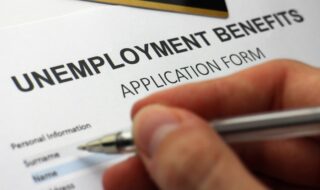April 21, 2025
A number of Illinois senators have signaled support
The Illinois Senate extended its committee and third-reading deadlines to May 9 for a bill that would impose a job tax on Illinois employers and employees.
SB 2413 (Villivalam) would impose a payroll (or job) tax on Illinois workers and employers to fund a state-run paid-leave program.
The proposal is currently in the Paid Leave Subcommittee of the Senate Executive Committee.
The legislation calls for a beginning payroll tax of 1.12% on wages to go into effect on January 1, 2027.
- Initially the employee would pay 40% of the payroll tax and employers with 25 or more employees would pay the remaining 60%.
- Beginning January 1, 2029, all employers would be required to pay 60% of the payroll tax.
The payroll tax percentage could fluctuate based upon the program’s spending but, in the proposal, it is capped at 1.25% of wages.
Minnesota passed a similar proposal in 2023 and—even before the program has fully gone into effect—the state has already increased the payroll tax it initially imposed on Minnesota jobs.
Under the proposal, employees would be eligible for up to 18 weeks of paid family and medical leave per year. In addition to the 18 weeks, employees would be eligible to take an additional 9 weeks of paid leave for pregnancy-related issues.
Authorized reasons for leave include:
- Personal-health issues
- Physical or psychological care of a family member
- Birth, adoption, or placement of a child
- Pregnancy-related issues
- Personal or family member’s experience of domestic or sexual violence
The program would pay individuals 90% of their average weekly benefit rate up to $1,200 during authorized leave. The maximum payment rate would be adjusted every year to match Illinois’ weekly wage rate.
The payroll tax would not be assessed on the first $15,000 in income or on income above $352,200 (or “2 times the Social Security contribution and benefit base…whichever is greater”).
NFIB is a member-driven organization advocating on behalf of small and independent businesses nationwide.
Related Articles














